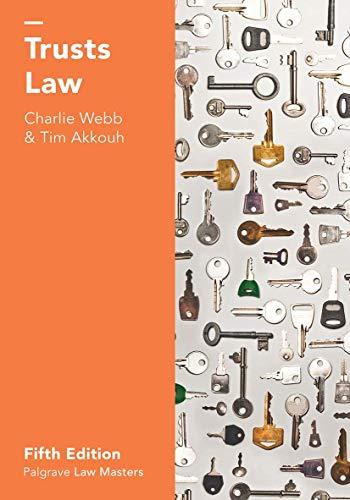Question
As you have learned in the Unit, to make an arrest, a police officer must have probable cause that a crime has happened or is
As you have learned in the Unit, to make an arrest, a police officer must have probable cause that a crime has happened or is about to occur. When an arrest occurs, it results in an immediate deprivation of a person's liberty by a legal state actor (e.g., police officer) for the purpose of taking an individual into custody to answer some criminal charge. Actively discuss the following questions: Discuss what elements are essential in determining whether an individual has been "arrested" or not. You should identify and discuss the difference between a "stop" and an "arrest" in your post. During an arrest, a police officer may use "reasonable" force to effectuate the arrest. What does the term "reasonable" mean regarding the amount of force needed during an arrest? Should the Supreme Court continue to recognize substantive due process rights in the Constitution?
Address whether you agree with the conclusions of your peers or not. Ask probing questions that are specific to each post to which you respond.
NB: Please Provide and cite properly the resources.
Step by Step Solution
There are 3 Steps involved in it
Step: 1

Get Instant Access to Expert-Tailored Solutions
See step-by-step solutions with expert insights and AI powered tools for academic success
Step: 2

Step: 3

Ace Your Homework with AI
Get the answers you need in no time with our AI-driven, step-by-step assistance
Get Started


